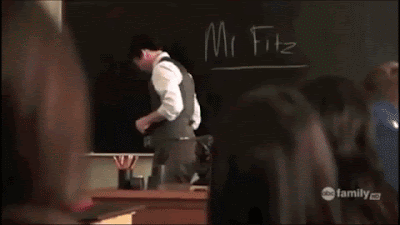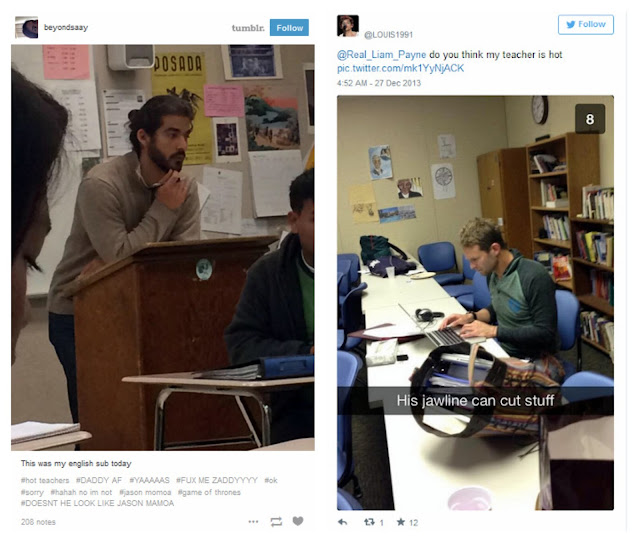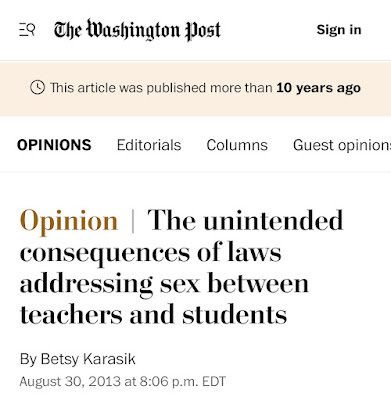Child grooming is the act of influencing children or young teenagers to befriend or trust an adult for the purpose of sexual manipulation later in the future. Forms: victim selection, gaining access, isolating the victim, developing trust, keeping secrets, and giving gifts [i.e., literally and/or emotionally (e.g., “attention”)]
Connectedly, Anne Barnard, in her New York Times piece “What does ‘grooming’ mean in sexual abuse cases?” (Dec. 2, 2021) related that grooming:
[...] is a gradual process whereby an abuser wins the trust and cooperation of a potential victim, starting with interactions that seem normal and benign, like paying special attention or offering compliments and gifts.
Next the abuser acclimates the victim to physical touching and sexual references, breaking down ordinary boundaries. Gradually, the predator exposes the victim to sexual behaviors, like light touching, to desensitize them.
Then McNamara shared with Day that she had a high school history teacher whom had a number of affairs with his students. And that he “picked” well-developed students whom were raised by single-parents - thereby, implying, implausibly, that an under-developed student with two parents would not have an affair with a teacher. And McNamara implied, erroneously, that student-teacher affairs are always initiated by teachers; however, minutes later, Day and McNamara shared that student-teacher affairs can be initiated by students.
For example, Day shared that when she was a 16-year-old high school student, she “loved [getting] attention from, like, older people - older men”. And based on McNamara’s question, it’s safe to infer that the “older men” Day was referring to were teachers.
McNamara: Did you ever, like, have a creepy, like, teacher [...] that, like, everyone knew about?
Day: [...] personally, when I was in my sixteens and seventeens, is when I started to, like, become more adult. You know what I mean? Start [to] become an older teenager. You know what I mean? And I started to feel like I was 16 going on 25. You know what I mean? And, like, loved attention from, like, older people - older men. You know what I mean? And looking back now, as an almost 26-year-old woman. I’m like, “Girl, what was going on?”
Interestingly, McNamara went on to take the blame for student-teacher affairs away from grooming teachers and placed that blame on Lana Del Rey. McNamara opined that Lana Del Rey “[...] made a lot of 16-year-olds be like, “Like, dating my teacher would be amazing?”” [Emphasis added]
McNamara: Can I ask, were you listening to Lana Del Rey? ‘Cause, like, I feel, like, there needs to be an parental advisory on some of those albums, like, it made a lot of 16-year-olds be like, “Like dating my teacher would be amazing?”

McNamara was referring to the fact that Lana Del Rey referenced Lolita in a number of her songs. For example, “Little Girls (Put Me In A Movie)” is a song on Lana Del Ray (2010). Here is a (self-explanatory) excerpt from the lyrics:
Lights, camera, action
If he likes me, takes me home
Come on, you know you like little girls
Come on, you know you like little girls
You can be my daddy
You can be my daddy
Day added that in addition to being influenced by Lana Del Rey, the student-teacher affairs in Pretty Little Liars were influential as well. But most revealingly, Day confessed that she takes half the blame for having a (consensual) student-teacher affair.
Day: Like, honestly, you got me there. And I was also watching Pretty Little Liars. [...] I found myself in some bad situations. As many of us did. And I think looking back there’s always, like, you, like, look at it and you’re like, “I shouldn't have done that.” But at the same time, I’m like, “They shouldn’t have done that.” You know what I mean?

As for Pretty Little Liars, the ABC Family show had, not one, but two student-teacher affairs. The affair between Aria and Mr. Ezra Fitz (i.e., Ezria), Aria’s English teacher, is inarguably the most famous (fictional) student-teacher affair in popular culture; however, before Ezria there was Ezrison - the student-teacher affair between Alison DiLaurentis and Ezra. And just like with Aria, Ezra met Alison in a bar, where, just like Aria, 15-year-old Alison lied about her age.
On the podcast, Day went on to relate that, like McNamara’s high school, student-teachers affairs were prevalent in her high school as well.
Day: So I think, like, and I think there’s a lot of girls who had that [...] but a lot of people who have that experience don’t talk about it [...]
We're not surprised by Day's assertion that "there’s a lot of girls who had [student-teacher] affair. We've written extensively about how fictional and non-fictional student-teacher affairs are portrayed in popular culture. And on social media, from Tumblr to Twitter to TikTok, schoolgirls have posted about their attractions to teachers.
In the end, Day had a student-teacher affair, because she desired attention from older men, and she was influenced by Lana Del Rey’s lyrics and the student-teacher affairs portrayed on Pretty Little Liars; however, like Day said, her teacher should have had more power (over himself) to resist, which is were the power imbalance should have come in, but commonly, teachers do not have the power to resist a nymphet, which raises the question: Where is the power imbalance in student-teacher relationships?
Alisson Wood wrote in her memoir Being Lolita that she had the power in her student-teacher affair with Mr. North - her English teacher. Wood wrote that she was a beautiful 17-year-old who boys called a “Disney princess”. Yet it wasn’t until after she met Mr. North that she said: “I wasn’t suicidal anymore.” Alisson’s suicidal ideations stemmed from the fact that she felt that her body was her: “[...] only possible source of power.”, which she blamed on Britney Spears, Christina Aguilera, MTV, Fiona Apple, Abercrombie & Fitch, and Victoria’s Secret.
However, Alisson used the power of her body on her English teacher. Alisson related that she knew that she had power over Mr. North but that she wanted the power of sex and the safety of childhood: “[...] my breasts, all of the things that shifted the way men looked at me. If this was power [...] I wanted the safety of childhood and the power of sex. I wanted it all, in my life and in my body.”
And Maggie shared in Lisa Taddeo’s (non-fiction) book Three Women, that she had the power in her student-teacher affair. Agmand that the source of her power was her age and the fact that her illegal lover was a teacher.
Lastly, artist and writer Betsy Karasik opined in the Washington Post op-ed "The unintended consequences of the law addressing sex between teachers and students" (August 30, 2013) that: [...] consensual sexual activity between teachers and students should not be criminalized."
Karasik went on to submit that schoolgirls don't have to be groomed to have affairs with teachers, because schoolgirls have "sex on the brain" a lot. Consequently, a number of Karasik's high school classmates had consensual sexual relations with teachers, which Karasik fully condoned - with consensual being the keyword.
"When it comes to having sex on the brain, teenage boys got nothin’ on us. When I was growing up in the 1960s and ’70s, the sexual boundaries between teachers and students were much fuzzier. Throughout high school, college and law school, I knew students who had sexual relations with teachers. To the best of my knowledge, these situations were all consensual in every honest meaning of the word..."
Despite, Karasik's Washington Post piece, the law addressing sex between teachers and students hasn't changed; therefore, teachers must use their power to resist the allure of salacious schoolgirls - and vice versa.







No comments:
Post a Comment